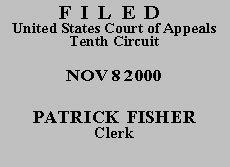

| UNITED STATES OF AMERICA,
Plaintiff-Appellee, v. HASSAN ZAGHMOT, Defendant-Appellant. |
|
Defendant-appellant Hassan Zaghmot appeals the district court's denial of release pending trial. We have jurisdiction pursuant to 28 U.S.C. § 1291 and 18 U.S.C. § 3145(c), and we affirm.
Zaghmot is charged with conspiring to unlawfully manufacture methamphetamine by distributing pseudoephedrine, a precursor chemical in the manufacture of methamphetamine, in violation of 21 U.S.C. § 841. After his arrest, a United States magistrate judge set a cash or property bond in the amount of $100,000, along with special conditions of release.
Before Zaghmot posted bond, the government filed a motion to stay the release order pending district court review of the magistrate judge's decision to release Zaghmot on bond. See 18 U.S.C. § 3145(a)(1). The district court granted the requested stay and scheduled an evidentiary hearing on the government's motion for review.
The elemental reason for detaining a defendant pending trial is that, after a hearing, a "judicial officer finds that no condition or combination of conditions will reasonably assure the appearance of the person as required and the safety of any other person and the community." See § 3142(e). Factors to be considered in this determination involve the nature and circumstances of the offense, including whether the offense is one of involving violence or narcotics; the weight of the evidence; the history and characteristics of the defendant; and the nature and seriousness of the danger to any person or the community. See § 3142(g).
In its motion, the government invoked § 3142(e), which provides that "upon a finding of probable cause that defendant has committed a federal drug offense carrying a maximum prison term of ten years or more, a rebuttable presumption arises that no conditions of release will assure defendant's appearance and the safety of the community." United States v. Stricklin, 932 F.2d 1353, 1354 (10th Cir. 1991). An indictment constitutes a determination of probable cause. See id. Under § 3142(e), once the rebuttable presumption is invoked, the burden of production shifts to the defendant but the burden of persuasion regarding risk of flight and danger to the community always remains with the government. The defendant's burden of production is not heavy, but some evidence must be produced. Even if a defendant's burden of production is met, the presumption remains a factor for consideration by the district court in determining whether to release or detain. See Stricklin, 932 F.2d at 1354-55.
At the evidentiary hearing on Zaghmot's status pending trial, the government presented evidence concerning the scope of the charged conspiracy and Zaghmot's alleged role in it (which, if proven, would result in at least twenty years' imprisonment); the amount of currency and bank account deposits found in Zaghmot's control; Zaghmot's overseas financial transactions, resources, and connections; and Zaghmot's travel plans to join his wife and children on a family visit in Syria, a country which has no extradition treaty with the United States. Much of this information had not been presented at the initial bail proceeding.
For his part, Zaghmot proffered a statement from his wife indicating her intention to return from Syria in time for her children to begin the school year in Colorado. He also submitted a letter attesting to his good character from the Colorado attorney who assisted him with his successful asylum application (as a Palestinian refugee from Syria). Zaghmot argued that the § 3142(e) presumption was outweighed by his ties to the community, his inability to flee due to the seizure of his passport and property, and the availability of electronic monitoring. At the conclusion of the hearing, the court made findings of fact based on the evidence, noted the statutory presumption, and determined that "the government has, in fact, presented a substantial enough case for the Court to conclude that there . . . is no condition or conditions which would assure against the defendant's risk of flight and assure his presence for subsequent proceedings." Appellant's App., tab 4, at 108. Therefore, the court ordered Zaghmot detained pending trial.
On appeal, Zaghmot attacks the district court's findings concerning the charged conspiracy on the grounds that the government's evidence is largely based on the claims of two unreliable informants. He also argues that the court failed to give adequate weight to his community ties, his lack of a previous criminal record, or the fact that the government had seized his passport and money. This court's "review of detention or release orders is plenary as to mixed questions of law and fact and independent, with due deference to the district court's purely factual findings." Stricklin, 932 F.2d at 1355.
Here, the district court analyzed the § 3142(g) factors and correctly determined that the government had carried its burden of persuasion on the risk of flight issue. In light of the grand jury indictment, Zaghmot's attack on the evidence of his involvement in the conspiracy has little bearing on the bail determination. Moreover, the inferences the district court drew from Zaghmot's personal circumstances are reasonable. Based on our review of the parties' briefs on appeal and appendices, we conclude that the factual findings underlying the detention order are not clearly erroneous. The district court did not err in finding that Zaghmot posed a serious risk of fleeing and that no condition or combination of conditions would reasonably assure his appearance if he were released. The judgment of the district courtis AFFIRMED.
PER CURIAM
*. This order and judgment is not binding precedent, except under the doctrines of law of the case, res judicata, and collateral estoppel. The court generally disfavors the citation of orders and judgments; nevertheless, an order and judgment may be cited under the terms and conditions of 10th Cir. R. 36.3.